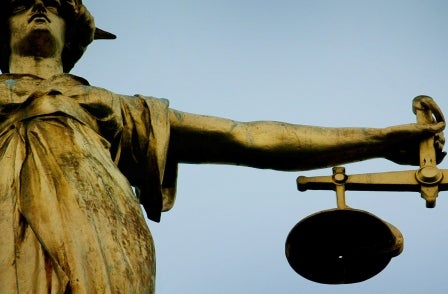
A leading barrister has attempted to derail plans to allow television cameras into court – claiming that broadcasters backing the measure only want “rape, blood and gore”.
Broadcasters won their long battle to allow cameras into courtrooms earlier this year when the Government announced that new legislation would be introduced over the court of the next Parliament.
Measures will be introduced in the Crime and Courts Bill to overturn the ban on filming in courts in England and Wales, allowing broadcasters limited access to judges comments (but not witnesses) at the Court of Appeal and Crown Courts.
But Baroness Kennedy QC questioned the motives of broadcasters in the House of Lords this week, claiming: “They want rape, blood and gore.
“They want weeping victims, lying witnesses and unrepentant villains in the dock. They want to get into the courts where the salacious and the violent are dealt with in detail.
“They insist that they are interested only in transparency, when I am afraid that their real interest is voyeurism. In the same way that sex, drugs and rock and roll sell newspapers, they pull in viewing figures for television, too.”
Kennedy’s claims came as she moved an amendment to the Crime and Courts Bill intended to restrict a change in the law to allow television cameras into courts to hearings in the Supreme Court and Court of Appeal only.
She told Peers during Report Stage on the Bill on Monday: “I have no problem with filming proceedings in the Supreme Court or the Court of Appeal, where matters of law, principles of human rights or constitutional issues of long-term significance are debated and judged.
"However, it is a serious mistake to introduce cameras into criminal courts; this whole issue should be approached with caution.
"We are being persuaded that this is a very circumscribed use of cameras and the rationale is that it will bring transparency to, and increase confidence in, the justice system. I believe it will ultimately have the very opposite effect.
"There has been lobbying for years to get cameras into courts. It should be recognised that television companies are not really interested in filming in the Court of Appeal or the Supreme Court.
"They want to get into the criminal courts or the libel courts – the places where the dramatic stuff of life is dealt with.”
Broadcasters such as the BBC, ITN and Sky News campaigned for years to get cameras into courts, and when the Government’s proposed amendments were included in the Queen’s speech they hailed the decision as an “important step for democracy and open justice”.
They believe the presence of cameras in courtrooms will lead to greater public engagement and understanding of our legal system, but Kennedy contends the move will in fact be "damaging for justice".
“The Minister will no doubt say that there will never be filming of witnesses or jurors in cases,” she said, “but I assure the House that while the intention now may be to stick to judges’ sentencing remarks, that is not the endgame sought by television programme-makers.
"We often talk of slippery slopes in this House but this one is a sheer drop. As soon as sentencing is covered on television, there will be complaints that the public did not get to see the defendant's face when he heard his fate or that the remarks made little sense without hearing what the prosecution and defence lawyers had said in argument beforehand. So it will go on, with further and further encroachments sought."
Justice minister Lord Lord Ahmad of Wimbledon quoted comments made by then Lord Chief Justice, Viscount Hewart, in 1924: “Justice should not only be done, but should manifestly and undoubtedly be seen to be done.”
He added: “I believe that sentiment underlies the Government's view.”
Any order made to allow cameras into courts would have to have the agreement of the Lord Chief Justice, the approval of the Lord Chancellor, and would be subject to scrutiny by both Houses of Parliament.
Court broadcasting would be "introduced in a safe and proportionate manner," he said, adding: "That is akin to putting not one or two locks on the door but to putting three locks. It will take three people to open that door.
"However, we can go one step further. We believe that this triple lock, combined with existing reporting restrictions and the additional provision to allow judges to stop the filming and broadcasting of court proceedings to ensure the fairness of proceedings and to prevent any undue prejudice, will ensure that the interests of victims and witnesses, who are most important, as well as jurors, defendants and other parties, are fully protected," he said.
Email pged@pressgazette.co.uk to point out mistakes, provide story tips or send in a letter for publication on our "Letters Page" blog
